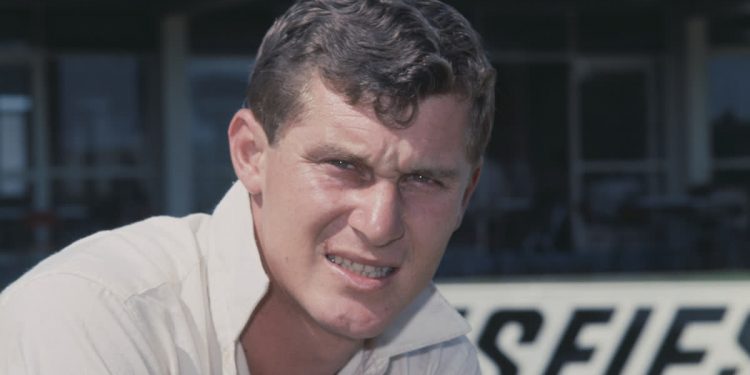After a protracted illness, former Australian batting all-rounder Bob Cowper, the nation’s first Test triple century, died at the age of 84. The left-hander’s famous 307-run marathon against England at the MCG in 1966 cemented his place in history.
Between 1964 and 1968, Bob Cowper participated in 27 Test matches for Australia, amassing 2061 runs at an average of 46.84 and five hundreds. One of Test cricket’s most iconic efforts was his 12-hour, 589-ball triple century, which was the only triple tonne scored in Australia in the 20th century. Prior to Matthew Hayden’s 380 against Zimbabwe in 2003, that hit was also the highest Test score ever recorded on Australian soil.
Bob Cowper will always be recognised as a fantastic batter: CA chair Mike Baird
With 36 wickets, the former was also a useful off-spinner in his spare time. He mostly played for Victoria in first-class cricket, scoring 10,595 runs at an average of 53.78 in 147 games. He has 183 wickets and 26 hundreds in his record.
Bob Cowper was hailed by Cricket Australia (CA) as a tremendously gifted left-hand batsman who was renowned for his batting prowess, patience at the crease, and capacity to amass large totals.
“We are very sorry to learn about Bob Cowper’s demise. He was a highly esteemed figure in Australian cricket. In addition to his iconic triple century at the MCG, Bob was a fantastic batter who had a significant impact on the Victorian and Australian teams in the 1960s. In addition, he made a substantial contribution to cricket in other capacities, such as officiating ICC matches, and his insight was always highly valued. In a statement, Cricket Australia chair Mike Baird expressed the organization’s sincere sympathies to Bob’s family, friends, and former teammates during this extremely difficult time.
To pursue a career in merchant banking and stockbroking, he retired at the age of barely 28. Cowper was too smart and ambitious to continue in a game that offered only financial benefits for very long, according to cricket historian Gideon Haigh. He continued to be involved with the game, though, and eventually became an ICC match referee. In 2023, he received the Medal of the Order of Australia (OAM), a formal acknowledgement of his achievements to the game.







